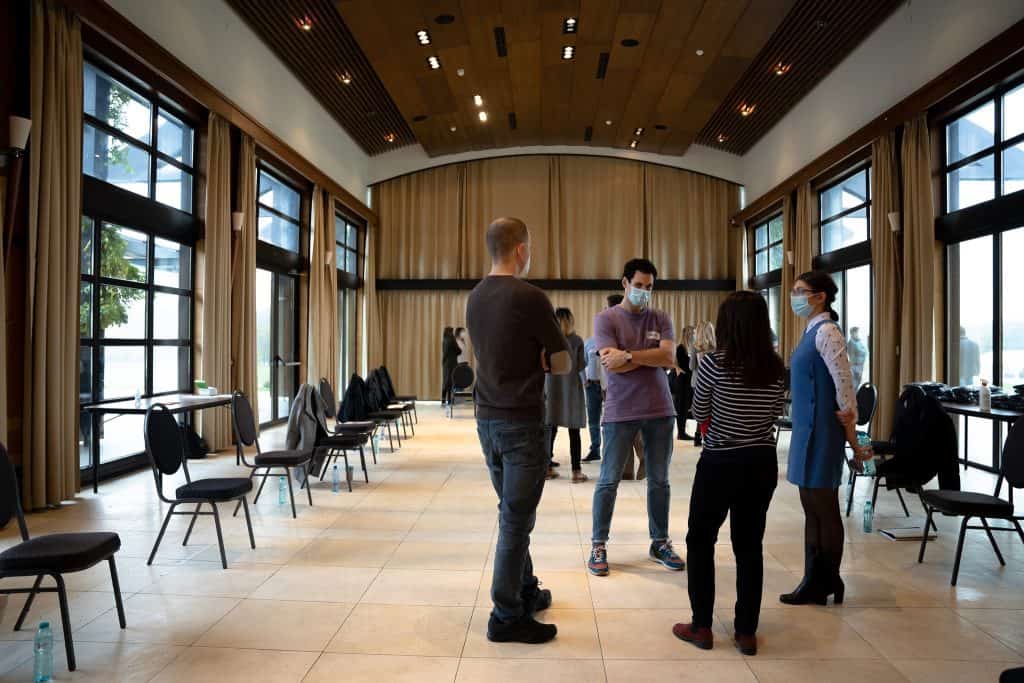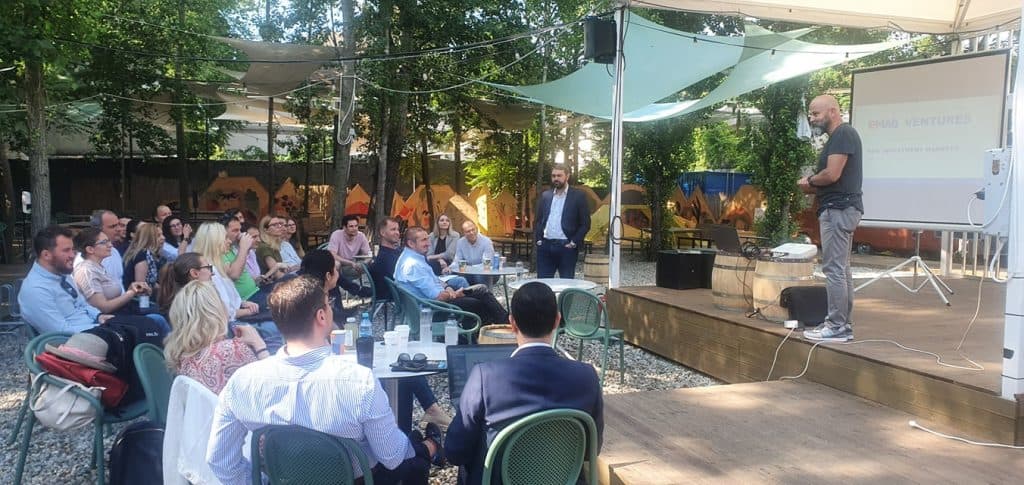If you’ve ever dealt with a child, you know that there comes a time in their life dreaded by parents and all others who interact with them. It’s called “the why” period.
They reach that age where they are trying to understand the world and keep asking questions that leave adults puzzled too (luckily, we have Google now). At some point, they give up and go on to explore the world on their own, learning by doing more than by asking.
It’s sort of similar in the professional world. Juniors start off with asking a lot of questions. Not always on the why, but rather on the how. Their managers try to give them as much input as they can and then experience comes and they ask less and less questions. By this point, they figured most of the things out and some of them reach the point where they get to teach others how.
Back to square one
A good professional or manager never stops asking why. We know business objectives change all the time (we’ve all had to pivot quite a lot during the pandemic), so to keep doing the same thing to get to a different outcome is what they called the definition of insanity.

So, even if they’ve done it tens or hundreds of times, the best performing professionals and managers ask themselves:
- Why are we doing this? Is it still relevant for our objective?
- Why are we doing this in this way? Is there a better way to perform the same action and get better results?
Especially in the age of digital, the done and tested way isn’t always the quickest or most efficient way. Imagine if we’d keep sending faxes to each other and never stopped to wonder if we can be more efficient by sending emails. Or if we’d called/emailed each other in the office instead of using chat.
Routines are easy to follow because they are familiar, but there comes a time when we need to do something different (remember the changing objectives). But what?
Why is the neighbour’s goat giving more milk?
Professionals get to a point where they start to ask themselves “what are others working in the same industry/area as me doing?”. What is their performance? What makes them launch a new product or service every year? Even when the company they’re working for is still struggling to increase margins on something that was launched 3 years ago?
Why do corporations, having such a bad rep in terms of working styles, still perform as they do? Anyone working in technology (and a lot of people outside it) have wondered what helped UiPath become a unicorn?

Unfortunately, rarely does Google help anymore, like it does in the case of parents. There are times when all the articles, videos and podcasts don’t contribute to much and you still feel stuck. And that’s where a professional course comes into play.
Learning from other’s mistakes
Sergiu Neguț is one of the lecturers in the leadership courses that BISM organizes. He was instrumental to Regina Maria’s growth (ever since they were Centrul Medical Unirea), is part of the board in a lot of growing start-ups and is now contributing to the growth of FintechOS, a fintech start-up evaluated at 220 million dollars in April 2021. One of the things Sergiu says in class is we can learn by doing, but ideally, we should also learn from other’s mistakes and don’t repeat them.
Sergiu teaches Executive MBA and Fast Track Management Program (the mini MBA program) strategy – how to choose a strategy and why every company should have one. This is done not only by reviewing the theory behind it, but also through his examples and those of students in class. And that helps the lecturer too. As Sergiu also says,
the dialogue with the participants, with the students in the courses, is something that enriches that knowledge for the lecturer. This is done at a level where it can be even better applied in my businesses.

The curricula of the classes has been curated together with the partners from Maastricht School of Management Netherlands. It is adapted to current business needs, drawing from their experience of over 68 years delivering management programs. The courses are taught by experienced professionals and have a level of details relevant for a manager.
For example, in the accounting class, students don’t learn bookkeeping, but they learn how to read an accounting report. In marketing, the focus isn’t on how to implement a campaign, but how to link it to the company’s strategy. And in all classes, students uncover the why – like why things done in different ways can both have good results. They also learn to question the why and this is something that they then take forward in their personal and professional lives.
My story of (un)stucking
I was that stuck person. I became an entrepreneur by chance, when I thought that it is only the option I have to escape company politics (I still kinda think that). I also work quite well on my own, so I thought this is the way to go. No business plan, not a lot of know how into what makes a company perform (or fail), only the desire to make my own plan and implement it.
And it sort of worked – I managed to support myself through the first year and even had a second employee to brave the start of the pandemic with. But I wasn’t making a lot of progress. Not in the “this is not going to be a unicorn in the next 5 years” way, that was never the plan. But in a “this will be a struggle until I find a better way to do things” way.

I was already in touch with BISM (MSM Romania back then) and had attended their events, so I knew I liked the teachers. I was also marketing their programs, so I knew and agreed with their philosophy of creating change agents through hands-on education. Of learning by doing and by interacting with those that have walked in your shoes (and other bigger shoes too). And of course, of having fun along the way.
I went into the MBA program thinking I will develop new hard skills and one year down the line (I still have another to go when I’m writing this), my greatest wins were the soft skills and the community. In Adrian Stanciu’s course, Managing Cultural Diversity, where we performed an LSI (Leadership Styles Inventory) analysis on ourselves, I understood more about myself as a leader. Both with positives and negatives and the steps I need to take to become better at growing performant teams. In accounting and finance I gained an understanding of how to fund a project and how to evaluate its performance outside the cash flow. In critical thinking I learnt about “sunk cost”. Now, when I think of giving something up that isn’t working, I no longer think about the investment put into it, but of future outcomes expected.
But really, my biggest win is my colleagues. We have a great cohort of diverse professionals and great people, coming from diverse industries and with a range of experiences. Horia has been working in the same company for the past 20+ years and is an example of commitment and motivation to being better even after that time. Iulian is a self-made professional who is continuously focused on growing and has the greatest cross-cultural stories. Luciana reminds me of the enthusiasm, passion and ambition you have in your 20s and how valuable that is.
They’re just a few of the colleagues that have an impact on me since last year. If I’d have to name the people I’ve laughed with, danced with, partied with and had deep conversations with, I’d never finish. I learn a lot from them and I enjoy their company so much that I know we’ll keep in touch even when the program finishes.

And if you’re wondering if I fulfilled the objective I joined with last year? I did. At the start of the pandemic, I looked at current business expenses to see where I can make savings to survive for a few months. One year later (pandemic and MBA included), I’ve surpassed my revenue target for the year, I’m looking into bringing new people in the team and I’m planning to launch a new start-up soon. After all, now I have the tools to put some structure behind it and rely on more than just luck.
Why (not)?
In the Q&A sessions on the leadership programs and in one-on-one interviews with potential students, the question of “why should I do the program” always appears. At the same time, school representatives help them think also why they shouldn’t do it. The reasons why not mostly revolve around the lack of time needed for class, because as any significant change, it can’t happen without time and effort invested into it.
But if you can find the time to invest in yourself, in your development as a person and as a professional, the experience makes it worth it. This has been seen over and over again through 11 generations of Executive MBA students and 14 generations of Fast Track Management Program over the past 11 years.

Oliver Olson
Really an awesome overview. Thanks for taking the time to give this great overview!